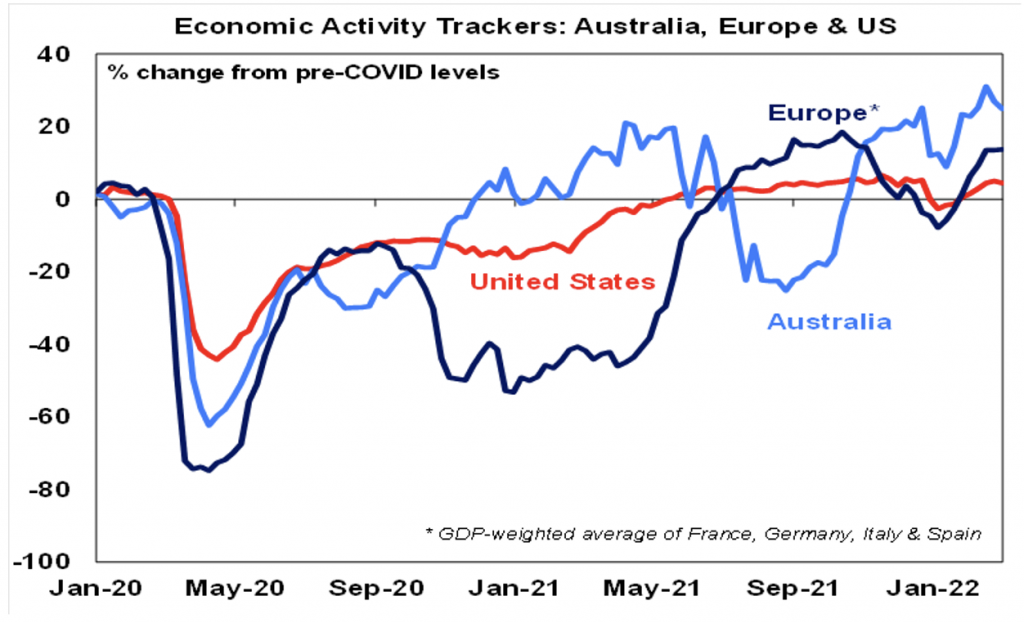

The hospitality sector is flying in foreign workers, which is a bad sign for the economy now but a great one going forward. All around us we’re seeing good omens that the economy is getting back to normal and the need for foreign workers (and the fact that they might be attainable) is a great positive indicator for the economy.
Travellers who come here to not just holiday but work, have been crucial for many businesses. In the financial year 2020, which was when the pandemic struck in February, we still received a total of 439,000 international backpackers, which was significantly less than the previous financial year — for virus reasons!
But as we closed up the economy to beat the Coronavirus, those ‘workers’ were not needed. But the fact that businesses are crying out for them now is a real plus for our outlook, despite problems now.
But that was then. This is now, with unemployment at 4.2%, which is a low level not seen since before the GFC in 2008. And employment is at a record high!
So it’s not surprising that the AFR’s Dominic Powell has reported that “the parent company behind a number of prominent restaurants such as Rockpool, Spice Temple, Munich Brauhaus and The Bavarian has employed 125 recruits from the Middle East, Europe and the United States at a cost of $10,000 to $20,000 per employee in an effort to bolster languishing worker numbers locally”.
The caterer for the MCG says the business is a few hundred short of the usual 3,000 workers they have to run their business across many venues, and the AFR story quoted restaurant owners telling us demand to dine out is strong.
This uptick in demand for hospitality workers comes as the economic activity tracker chart says to expect both a lot of job opportunities and inflation in coming months.

That blue line is on the rise and it shows Australia is economically rebounding better than the USA (the red line) and Europe, which will soon show the negative effects of the Ukraine war.
Hopefully, that will be a short-term problem, with news overnight that EU stock markets reacted very positively to peace talks progress between Russia and Ukraine. The German stock market was up a big 3.76% on the hopeful news and the French CAC Index was 3.68% higher.
If the war can be ceased, then the focus will go onto how many interest rate rises are likely for the US economy. Overnight, the Fed made its first quarter per cent interest rate rise and looking at the predictions of the Fed presidents who vote, six more rises this year could be on the cards.
This will happen if the US economy remains strong and inflation remains elevated. Interestingly, the Dow did not sell off on the Fed’s rate rise news, and the tech-heavy Nasdaq actually was up a notable 2.98%, which is a positive sign, considering the tech sell offs lately.
On that subject, Paul Zahra, the CEO of the Australian Retailers Association says a “tsunami” of inflation is coming on goods his members sell, as the supply chain problems caused by the pandemic and now oil price increases coming out of the Ukraine war, make it impossible for retailers to resist price increases.
Fortunately, peace talks have helped the price of oil fall 23% in a week to $US95 a barrel after hitting nearly $US124 last week.
What lies ahead for the economy is uncertain because of the war, the Fed now raising interest rates and China going back into lockdown because of a new virus threat. But stock markets are a forecaster on the economy and the future profitability of companies. And right now, they’re becoming progressively positive.
German DAX

This chart of the German stock market’s DAX shows the kick up, with peace talks helping push the oil price down 23% in a week. Provided a settlement can eventually be reached between Russia and Ukraine, the expected economic rebound should help stock markets and the international movement of goods, services and people!
Seeing the economy get back to normal and the stock market starting to consistently rise (as Rachel Hunter once said in a Pantene commercial about how the product that would improve your hair): “It won’t happen overnight, but it will happen.”
That’s the kind of economic and investing model I like!